Resources
| Digital Media | 21st century show and tell | |
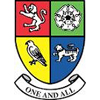
|
A DEFT case study with Dinnington Comprehensive, Rotherham This cross curricula(i) case study focusses on Digital Literacy, in particular using E-skills(i) to: support skills in writing/recording for a target audience and to improve communication and research skills through the process of creating OER(i)s. The case study illustrates issues involved in the use of video(i) for educational purposes, with an emphasis on students producing and releasing OERs. The method could also be used for self/peer assessment(i) with pupils.
One of the lesson ideas from the case study is available as a separate resource at Creating Instructional Videos. | |
| Astronomy | 88 Miles per Hour | |

|
Aiming to win 'A level' recruits with a trip to the strange world of relativity and quantum mechanics The lesson initially looks at time travel, however the overriding theme is that of modelling(ta) and scientific method(ta). It aims to show students that it is acceptable to get a result that doesn't fit with what you expect. It just means you need to change what you expect next time!
| |
| Global education | A global dimension to science education in schools | |

|
Science and technology beyond the Western world This study unit is aimed at teachers who would like to give a more global feeling to their teaching. It shows how to source articles with an emphasis on science and technology beyond the Western world and how to incorporate them into teaching the curriculum.
| |
| Group work | Active Engagement | |
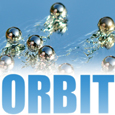
|
||
| Astronomy | Alien Life | |

|
Are we alone? This last of six presentations to recruit students for A level physics, is more light-hearted and simpler than the two previous resources. It considers the arguments around whether or not humanity is alone and includes an initial look at the bizarre nature of many of the claims of alien encounters - including a fictional one for good measure - before moving onto the more serious side of alien hunting. It concludes with a probabilistic argument based on the Fermi paradox.
| |
| Handling Data | All in a Jumble | |

|
My measurements have got all jumbled up! Swap them around and see if you can find a combination where every measurement is valid. This lesson idea is about applying and consolidating(ta).
The collection of NRICH activities are designed to develop students capacity to work as a mathematician. Exploring, questioning, working systematically, visualising, conjecturing, explaining, generalising, justifying, proving are all at the heart of mathematical thinking. This particular resource has been adapted from an original NRICH resource. NRICH promotes the learning of mathematics through problem solving. NRICH provides engaging problems, linked to the curriculum, with support for teachers in the classroom. Working on these problems will introduce students to key mathematical process skills. They offer students an opportunity to learn by exploring, noticing structure and discussing their insights, which in turn can lead to conjecturing, explaining, generalising, convincing and proof. The Teachers’ Notes provided focus on the pedagogical implications of teaching a curriculum that aims to provoke mathematical thinking. They assume that teachers will aim to do for students only what they cannot yet do for themselves. As a teacher, consider how this particular lesson idea can provoke mathematical thinking. How can you support students' exploration? How can you support conjecturing, explaining, generalising, convincing and proof?. | |
| Assessment | Assessment for Learning | |

|
Research shows that good practice in assessment for learning can bring about significant gains in pupil attainment Assessment for learning has been defined as the process of interpreting evidence to decide where learners are in their learning, where they need to go and how best to get there. When assessment(ta) for learning is well established in a classroom, pupils are actively involved in their learning; able to judge the success of their work and to take responsibility for their own progress.
For some shorter more focused documents drawn from this DfES document see Giving Oral Feedback, Giving Written Feedback, Sharing Learning Objectives and Outcomes. | |
| Assessment | Using Assessment to Raise Achievement in Maths | |

|
Learning goals; self & peer assessment; effecting questioning; marking and case studies This resource explores approaches to assessment(ta) in maths, including the sharing of learning objectives(ta), group work(ta), whole class(ta) assessment, questioning(ta) and more. Four case studies serve as useful discussion prompts to share practice(ta). This .doc version of the QCA's 'Using assessment(ta) to Raise Achievement in Maths' allows schools to select parts of the document that are most relevant to them.
| |
| Astronomy | Astronomy Master Class | |

|
An overview of of six astronomy-related lessons resources (SC019 to SC0024) The Astronomy Master Class was developed to inspire the next generation of scientists and in particular physicists. Although this course of 6 lessons is framed mostly around the science of astronomy, it draws on many themes from physics and aims to show how they all can link together. Additionally, it is structured so that it deliberately does not cut across material in most standard GCSE science courses and does not aim to answer every question. A deliberate part of the design was to visit each topic area only briefly and leave students hungry for more.
| |
| Blogs | Blog skills for subject specialists | |

|
||
| Force | Building bridges from a piece of A4 paper | |

|
A bridge too far... This activity supports a number of learning types:
| |
| Astronomy | Celestial Wanderers | |

|
Why would we fly to another planet to study its rocks? Drawing on a rich range of sources, this presentation allows the teacher to introduce planetary geology(topic), something not normally studied until degree level. It uses the narrative(ta) of the Voyager Probes journey to illustrate the vastness of the solar system(topic) and also the challenges of designing a spacecraft to travel that far. It ends with a discussion of the history(topic) of Mars, and how the differences between it and the Earth resulted in Mars loosing its water and atmosphere whereas we have kept ours.
| |
| Science Education | Changes in Science education | |

|
Get down to the core of why we teach science Providing an overview of current issues in UK science education, this unit examines what type of science the curriculum should cover and for what purpose. It introduces students to practical problems in the delivery of an effective science curriculum(topic), and particular questions at all three educational tiers - primary, secondary and tertiary - are touched on. The unit can be used to assist curriculum planning(topic)
| |
| Assessment | Changing KS3 Questions for Engaging Assessment | |
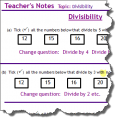
|
A large set of questions grouped by topic, paper, and national curriculum level Test questions are often seen as uninteresting and useful only to assess pupils summatively. This resource however allows questioning(ta) to be used to support pupils’ revision, creativity and higher order(ta) problem-solving in class. The tasks could be conducted via whole class(ta) discussion(ta) or assessment(ta), perhaps using mini-whiteboards(tool), or in small group work(ta) situations.
| |
| Area | Circles, frustums and cylinders revision | |

|
Measure the volumes of objects This resource offer students the opportunity to engage in active learning(ta) - measuring and calculating using large size cylinders and frustums. This lesson brings great opportunity for small group "dialogic teaching(ta)". Open-ended and closed questioning(ta) of students can be used to draw on their existing knowledge and extend their understanding. The teacher provides a practical commentary below.
| |
| Living things | Classifying and organising living things using images | |
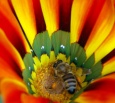
|
Find different ways to classify living things This lesson offers opportunities to explore ways to classify living things as well as characteristics which might be relevant, and how to address difficulties that may arise when trying to classify things in this way. The activity may be enhanced by the use of ICT(i) software (e.g. Picasa) but could be carried out with paper-based resources.
This lesson presents a good opportunity for small group work(ta) and some inquiry(ta) into how we classify; and why some classification methods might be more useful, or more scientifically interesting than others. There is also a good opportunity to use different sorts of questioning(ta); to encourage pupils to question each other; to engage in peer assessment(ta) and to focus discussion(ta) on the scientific method(ta) using key vocabulary(ta). | |
| Ethics | Cloning | |

|
Cloning - Potential and Issues The topic of the ethics(topic) of modern biology needs to draw on a wider range of sources than a printed book may provide. This resource uses a web tutorial interspersed with external links to news and comment. Rather than leave the students to explore too many interests, a worksheet with questions enables the teacher to focus the students on a subset of the material. You can adapt this to your particular need, for example, if you wanted students to have a discussion(ta)in small groups. You might also consider using a blog, chat room or other ICT tools to record the questioning(ta) and reasoning(ta) around this topic. The lesson-planning proforma (or draft lesson plan) includes a list of objectives that shows the scope of the material.
| |
| No main topic | Collaborative Writing | |
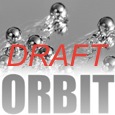
|
||
| Astronomy | Comets and Meteors | |

|
When a comet approaches the sun its tail is behind it. When it is moving away from the sun the tail is in front. Go figure. Or read more. The lesson model is that of active note-making. Students must not take notes from the board but instead must use their creativity to develop their own notes. They are encouraged to use colour, image, symbols, humour and metaphor to lead them through a richer learning experience. Students need help in achieving this but soon catch onto the idea. They become more independent with taking notes and more attentive to the subject at hand.
| |
| CPD | Common Pitfalls in Questioning | |

|
Exploring problematic questions and ways to avoid them Questioning(ta) is a key classroom practice, and skill, and can sometimes fall into the trap of focusing on lower levels, as opposed to higher order(ta) reasoning(ta) and discussion(ta) skills. This resource covers some reasons why this - and other pitfalls - occur, with some practical advice for ensuring high quality questioning in your classroom.
| |
| Investigation | Consecutive Sums | |

|
Can all numbers be made in this way? For example 9=2+3+4, 11=5+6, 12=3+4+5, 20=2+3+4+5+6 By definition, a problem is something that you do not immediately know how to solve, so learning how to solve something unfamiliar is not straightforward. Tackling an extended problem is difficult.
This lesson gives pupils an opportunity to engage in mathematical thinking(ta) and develop their higher order(ta) thinking skills on a problem that is accessible but which has interest. For example, the problem is presented in diagrammatic and numerical ways. The plan suggests several visualisation(ta) methods to present the same underlying task. It should be useful for teachers to compare these different presentations and either to select the one that they feel will be most useful for their pupils or explore ways for the pupils to see the links between the different methods. The assessment(ta) ideas, using other pupils' solutions from the NRICH website are widely applicable to other problems too. | |
| Copyright | Copyright: keep it legal | |

|
||
| Digital Art | Creating Digital Painting using iPads | |

|
Children using iPads to create observational drawings of flowers This activity is a cross-curricular(subject) activity, that gives children to opportunity to work independently on an art activity that also encourages the development of E-skills(topic). This activity encouraged inclusion(ta) as the children's final work was displayed as a collaborative(tool) piece, where all children had the opportunity to make an equal contribution.
In this instance, the children created observational drawings of flowers. However, the subject of the art could change to fit with any topic across the curriculum. The use of hand-held technology could also active learning(ta) as the portability of the iPads and iPods would allow them to be used outside the classroom, thus enabling observational drawings to be made in a range of locations. | |
| ICT | Creating Instructional Videos | |

|
Children create instructional videos to upload to YouTube This activity is a cross-curricular(subject) activity with a literacy focus, involving a collaborative(tool) approach, giving children to opportunity to work together to produce a set of instructional resources. Children were encouraged to engage in group talk(ta) and discussion(ta) in the classroom to reflect on what they should include in their videos. The activity furthers e-skills(topic) through the use of whole class(ta) participation. It develops e-safety(topic) skills through discussion of the issues relating to posting digital content online. Children were allowed to choose their own subject for the video, although this could be set by a teacher with a specific outcome in mind, or could be tailored to cover a particular topic or subject. It could, for instance, be used to explain their mathematical thinking(ta).
| |
| Blogs | Creating and Using OER to Promote Best Practice | |

|
One school's approach to sharing and promoting best practice using a blog This lesson idea encourages collaboration(ta) between teachers in order to develop and share practice(i) across a school. Blogs provide excellent opportunities for children and adults to share ideas and work together. They encourage and enable dialogue(ta) between a writer - or group of writers - and an audience, allowing for quick and easy feedback. They enable questions(ta) to be asked and answered quickly. This example shows a blog being used to encourage discussion(ta) to enable curriculum planning(topic) and curriculum development(topic).
| |
| ICT | Creativity and ICT | |

|
Building communities and exploring creativity This unit engages with the debates surrounding the term ‘creativity(tool)' and explores ways in which ICT(i) creates new opportunities for creativity and collaboration(ta)
| |
| Statistics | Cubic Equations and Their Roots | |

|
To interactiviley explore and understand complex mathematics with GeoGebra This lesson features a ‘real life’ example for students to explore using visualisation(ta) via GeoGebra. The focus on ‘real life’ increases student motivation.
The activity engages pupils in group talk(ta), mathematical thinking(ta) and vocabulary(ta). This open ended(ta) task encourages higher order(ta) thinking, and encourages whole class(ta) discussion(ta)/questioning(ta) and inquiry(ta) projects. | |
| Genetics | How DNA is sequenced: the stages | |

|
The complexity and scale of genome sequencing Students match diagrams of the stages of DNA sequencing with a list of text descriptions of the process. The lesson can involve students discussing in pairs / group work(ta), followed by a teacher or student-led plenary. Students would share ideas, come to a consensus and check the ‘whole class(ta) response’ with their version. The teacher's questioning(ta) can focus on scientific method(ta) and use of scientific language(ta). The lesson idea provides opportunities for the effective use of assessment(ta).
| |
| ICT | Data Logging and Control | |

|
A compendium with numerous ideas for using sensors to teach science. This book provides a set of resources and lesson ideas with ICT(i) as a key focus for use in inquiry(ta) based learning and the scientific method(ta). It offers opportunities for use of group work(ta) and collaboration(ta) as well as whole class(ta) questioning(ta).
| |
| ICT | Data Logging inservice booklet | |

|
A compendium of CPD and ITE activities on why we use sensors and the practicalities of implementing their use Activities and advice for using ICT(i) for use in inquiry(i) based learning and the scientific method(i).
| |
| Ethics | Designer Babies | |
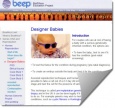
|
When does life actually begin? By using an informative web tutorial, this resource aims to stimulate discussion(ta) on the ethics(topic) of modern biology. A worksheet asks students where they stand and reassures them that their response might be kept private. You might also consider using a blog, chat room or other ICT tool to record the questioning(ta) and reasoning(ta) around this topic. A teaching section offers guidance on 'teaching argument' using 'Toulmin’s model of argument' and 'The IDEAS project'.
| |
| Effective Learning | Developing Effective Learning | |
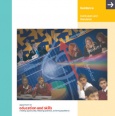
|
A unit exploring 'effective learning' in the classroom This document takes a longer look at effective learning, study skills(topic), and the attributes of effective learners.
| |
| CPD | Developing Good Explanations | |

|
Say that again? Developing good explanations for classroom teaching This resource explores some characteristics of good explanations (including linking to questioning(ta)), explaining these thoroughly and linking them to pupils' ability to engage in active learning(ta)
| |
| Literacy | Developing Language in Primary Science | |

|
Language development and the use of appropriate vocabulary(ta) is highlighted as important across the curriculum. Incorporating this consideration into science planning(ta) is important for meeting the target of developing language. The importance of language and talk in science – including through group work(ta), and Whole class(ta) dialogue – is highlighted elsewhere (and in the resource) but includes the ability to explain concepts, understand synthesising ideas (including those from other people and texts), and the need to read and write for different purposes, (including conceptual understanding, data presentation, etc). These are key ideas in communicating the scientific method(ta) | |
| Progression | Developing Progression in Primary Science | |

|
Progression and the wonders of 'one-ness' and 'two-ness' A first part on ‘developing progression in science investigations’ could be used to prompt discussion on how far we expect pupils to develop, and the sorts of inquiry(ta) which encourage this.
The second part, 'indicators of Level 1 and 2ness', provides a useful set of criteria for assessing national curriculum levels. These criteria prompt thinking about assessment(ta) levels in curriculum development(topic). A concrete outcome of the activity may be to keep such criteria in a mark book for day-to-day use. | |
| Reading skills | Developing Reading | |

|
||
| Writing | Developing Writing | |

|
Understanding the importance of writing This resource is a larger DfES document on writing(topic) and language(ta) development, from which more focused resources (including Establishing Purpose for Writing) are drawn.
| |
| Assessment | Diagnostic Questions in Maths Teaching | |

|
Using questions to probe what pupils do, and do not, understand These questions provide a useful starting point from which to think about the use of diagnostic questions(ta) for assessment(ta) for learning and whole class(ta) dialogic teaching(ta). They may be useful for teachers in their own right as sample questions, or to think about the best way to deliver feedback, use ICT tools effectively, and support learners through assessment. In this context the questions should be considered with a critical eye. Teachers might like to think about:
Teachers might take this as an opportunity to engage in sharing practice(ta) to think about how to use such questions in the classroom - perhaps using mini-whiteboards(tool) or ICT tools - and outside of them, perhaps using quiz(tool) or voting(tool) software. | |
| Differentiation | Differentiation | |

|
Developing effective techniques for differentiation by task and outcome The small group work(ta) nature of this task allows teachers to share ideas, and attempt to conceptualise two different types of differentiation(ta), together. It also encourages teachers to share practice(i)s in differentiation. Teachers are first asked to consider differentiation ‘by task’ by thinking about self-sustaining activities which pupils could manage with little support. They are also asked to consider differentiation by outcome, and ‘hierarchies of achievement’ for particular topics. The practical nature of the task offers a concrete outcome for teachers to take away and use in their practice both day to day, and in curriculum planning(topic). The resource could be used as a prompt to start teachers off, a comparator for teachers working on similar topics, or just as an additional set of possibilities.
| |
| Blogs | Digital Reporters at Camp Cardboard | |
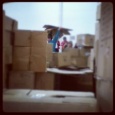
|
Children using iPads to blog about Cardboard Sculptures This activity is a cross curricula(subject) activity, involving a collaborative(tool) approach, giving children the opportunity to work together on a blog. Children were encouraged to engage in group talk(ta) and discussion(ta) in the classroom to reflect on the activity they were to report on. The activity furthers e-skills(topic) and e-safety(topic) through the use of whole class(ta) participation. The specific art activity provided a great stimulus for the blogging. Equally, however, this approach could be applied to any event in or out of school. The use of blogging and social media gave the opportunity for children to share their ideas with a wider audience, and also gave opportunities for real-time feedback to their work. The use of hand-held technology also enabled active learning(ta) as the portability of the iPads and iPods allowed them to be used outside the classroom.
| |
| Video | Digital Video in ITE | |

|
Student teachers producing digital media This activity is a cross-curricular(subject) activity, involving a collaborative(tool) approach, giving student teachers the opportunity to work together whilst making digital media in the form of films. The activity furthers e-skills(topic) and also helps to develop discussion relating to e-safety(topic). The topic of location provided the stimulus for the videos. Equally, however, this approach could be applied to any topic or subject in school. The use of video also encouraged active learning(ta), with the students developing their own skills through direct participation in the creation process.
| |
| Discussion | Discussion in Science Teaching | |

|
Equip yourself to run a discussion in class This resource is aimed at developing student teachers’ skills in working with discussion(ta). It can be presented to them as a hand-out to accompany an activity or read as reference material. See it online at BEEP website. Although it uses a science context, the real focus of the resource is managing and organising discussion-based activities. It provides guidance on:
| |
| E-safety | e-safety for Key stage 1 | |

|
See below for the full pedagogic rationale. | |
| Using ICT in Science Teaching | Effective Use of ICT | |

|
A resource for lecturers to introduce their PGCE students to effective use of ICT A presentation introduces student teachers briefly to the history of school ICT(i) provision and engages them in more detail with ways ICT has been used effectively in supporting science teaching and learning as they engage in small group work(ta) to evaluate material.
| |
| CPD | Encouraging Pupils to Ask Effective Questions | |

|
Getting pupils to do the questioning This resource describes some methods to encourage pupils themselves to engage in effective questioning(ta) - an active learning(ta) approach which may be useful in whole class(ta) or group work(ta) discussion(ta).
| |
| Museums | Enhancing pupil-learning on museum visits | |
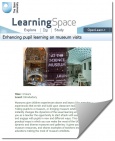
|
How taking pupils to a museum, or bringing museum artefacts into school, changes the dynamics of the learning environment. This unit explores practical ways in which you can make the most of UK's extraordinarily dynamic and diverse museums(tool) and galleries. It gives you pathways into museum resources and shares examples of teachers and museum educators making the most of museum artefacts.
| |
| CPD | Establishing Purpose for Writing | |

|
Why do we have to write it down? Thinking about why we write... This resource highlights some key types of text, and asks teachers to think about the key texts and language(ta) in their own subjects, and how tasks can be well designed to illicit purposeful writing in their classroom practice. Teachers should consider learning objectives(ta) for purposeful writing.
| |
| Ethics | Ethical issues in human reproduction | |
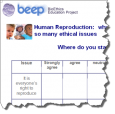
|
Why does reproduction raises so many ethical issues? When does life begin? This lesson outline stimulates A-level students to engage in discussion(ta), develop their reasoning(ta) skills and increase their awareness of the bioethical(topic) issues involved in human reproduction.
Background texts and open-ended questioning(ta) about human reproduction, contraception and IVF are provided as the stimulus. Small group discussion about these topics, writing on post-it notes, and reading case studies aim to get students reasoning(ta) to justify their opinions, and to compare and evaluate competing views. Finally, whole class(ta) discussion synthesises the emerging ideas and encourages students to consider changing their positions or adding additional issues to a recording table. | |
| Explaining | Explaining | |

|
How's that work? Thinking about explanation This is a longer DfES resource discussing explanation, from which the shorter and more focused resources Developing Good Explanations, Purposes of Explanations are drawn.
| |
| Sequences | Exploring Fibonacci sequences | |

|
||
